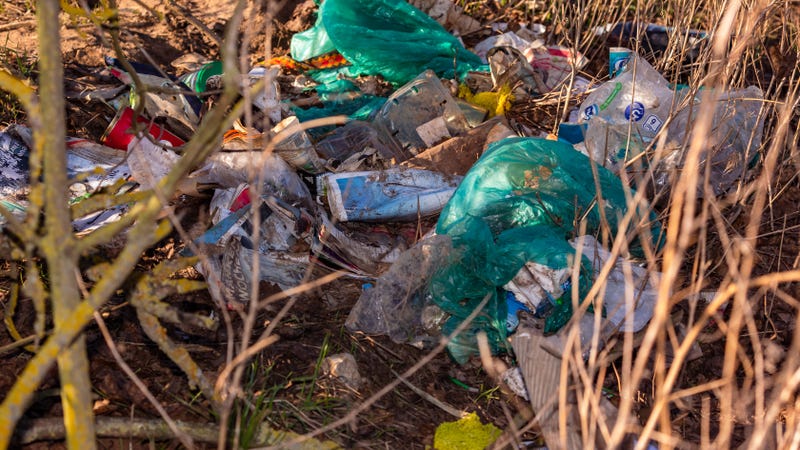
As spring temperatures melt away what's left of the winter snow, Minnesotans are getting a look at what's been hiding under that snow for several months, including trash and debris.
Whether it's a plastic bags, cardboard, food containers, bottles, or remnants of a fender bender, the Minnesota Department of Transportation says spring can certainly bring out the state's ugly side.
"Once that snow melts away and before it greens up, it really become noticeable that there is litter along the highways," said MnDOT spokesperson, Anne Meyer.
MnDOT tries to tackle the trash in a couple of different ways. Maintenances workers will pick up trash, but often times volunteers take time out of their week as part of the state's Adopt a Highway program.
In 2021, volunteers spent 70,000 hours alongside Minnesota highways and picked-up over 29,500 bags of trash.
"We are always looking for more volunteers," Meyer said. "We currently have about 830 sections that are available for adoption."
The Minnesota Department of Corrections' Institution Community Work Crews (ICWC) also plays a key role in removing roadside litter. ICWC puts people incarcerated at minimum-security facilities to work in the community under the supervision of a department crew leader.
"What we do, is we take incarcerated persons in the last four years of their sentences and work for government and non-profit agencies," said ICWC Supervisor, Scott Miller. "This program gives guys working skills, job skills, and life skills that they can use when they get out of prison so they can be productive members of the community."
Miller says there are several qualifiers for inmates who want to be in the ICWC program. To be in a minimum-security facility, one must be classified as a level one or a level two.
"That means during their time with the Department of Corrections, someone would have obeyed the rules, done their treatment mandates, and have been discipline free for six months," Miller said. "It depends on the crime you committed, the length of your sentence, and they're vetted very carefully so we make sure we put the proper people in the minimum classification."
People convicted of sex crimes in Minnesota are not able to be put into a minimum classification.
Prior to the Covid-19 pandemic, nearly 150 people including 22 crew leaders participated in ICWC. That number dropped to around 110 during the pandemic as courts shutdown and DOC protocols aimed at keeping spread of the virus low.
"It's just been very challenging time for people in the DOC because we are such a tight-knit living situation. We had to do things to limit the spread or limit the ability of spreading Covid-19. We took a lot of precautions by limiting the size of the crews and the number of people in beds."
Ahead of the NCAA Women's Final Four, ICWC overtime crews worked to remove litter and one day, a crew picked 170 bags of garbage in 8 hours of work.
"That was a crew of six guys and a crew leader," added Miller.
The process to get on a crew includes an application and an interview process and Miller says the positions are highly sought after.
"For any open position we get multiple applicants," he said. "A lot of the guys learn interview skills, what to say, and what not to say. A lot of them get the excitement of getting the position and the disappointment of not getting the position."

Communities statewide are seeing benefits from ICWC. In fact, the value the six or seven guys and a crew leader add to the city, according to Miller, is about the price of one full-time city employee.
"When these guys are out working with the city workers, the city workers treat them like coworkers. And that's probably one of the biggest values of this program because a lot of these guys have never had this treatment before. To see these guys get out and be treated like coworkers, instead of secondhand citizens, that's a huge value that this programs adds to them. We want these guys to get back, be productive members of society, and feel right about themselves by making the right decision."

